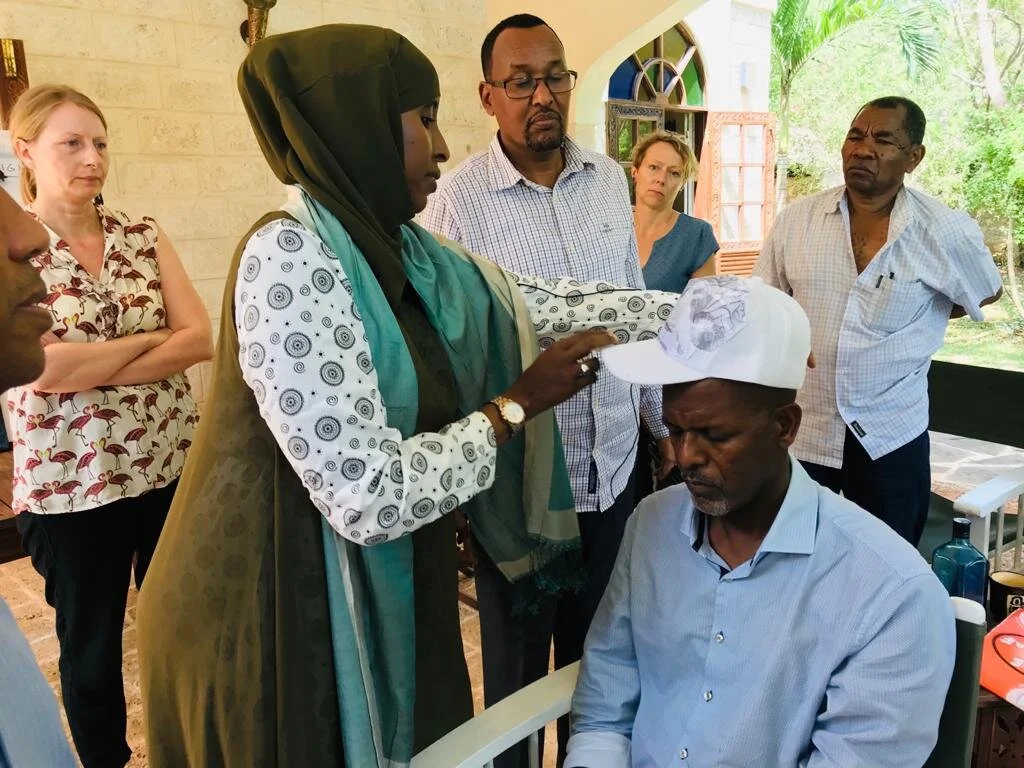By Natalia Kanos
“Can a country rebuild without dealing with the individuals that make up the country and their trauma?” MHCR Reconciliation Fellow Rowda Olad seeks to be a solution to the problem addressed by this question.
Rowda Abdullahi Olad is a psychotherapist and peacebuilder whose work has led her back to Somalia where she has founded the Mandeeq Mental Health Without Borders. Rowda explains her drive and reason behind her work by saying that saying:
“Most of my work relates to maintaining mental health as an integral component of state-building and peacebuilding, and I try to help the international community and… the Somali government to understand this is a nation that needs healing…This is a nation that has experienced more than what a human mental capacity can take,” said Rowda Olad during her interview with Voice of America.
A country cannot build and develop without addressing the traumas individuals have experienced in conflict. As Somalia has faced years of violence and trauma, Olad realized the need to integrate healing and psychoeducation (the process of providing education to individuals seeking and/or receiving mental health support) into processes and practices of reconciliation throughout Somalia. In her view, Somalia is impacted by continual violence and instability, in part because trauma is not addressed and space for reconciliation has not been created.
Olad’s concern at the lack of intersecting work between conflict, trauma, and social psychology within the political space has inspired her efforts to develop support processes and mechanisms that will address both individual and collective trauma throughout Somalia.
This vision has brought her to the MHCR where she has become a Reconciliation Fellow, aiming to develop guidance on how an understanding of trauma and mental health can be used for peacebuilding and reconciliation in post-conflict societies. As a Center bringing reconciliation scholars and practitioners together, in hopes of developing and impacting ongoing and future reconciliation processes, MHCR was the perfect place for Olad to develop the skills and efforts needed to address the years of trauma and mental health stigma experienced within Somalia and the world at large.
Olad argues that “efforts aiming for social harmony require a parallel focus on the reconstruction of political institutions as well as the psychological rehabilitation. Without integrating individual and collective healing practices the foundations of transformation simply will not last”. The Mary Hoch Center for Reconciliation is committed to advancing efforts that integrate healing and wellbeing practices into processes of societal transformation and supporting individuals and communities seeking to advance this important work.
Photo featuring Rowda Olad leading a psychoeducation workshop at an MHCR reconcilers retreat in Dec. 2019.
